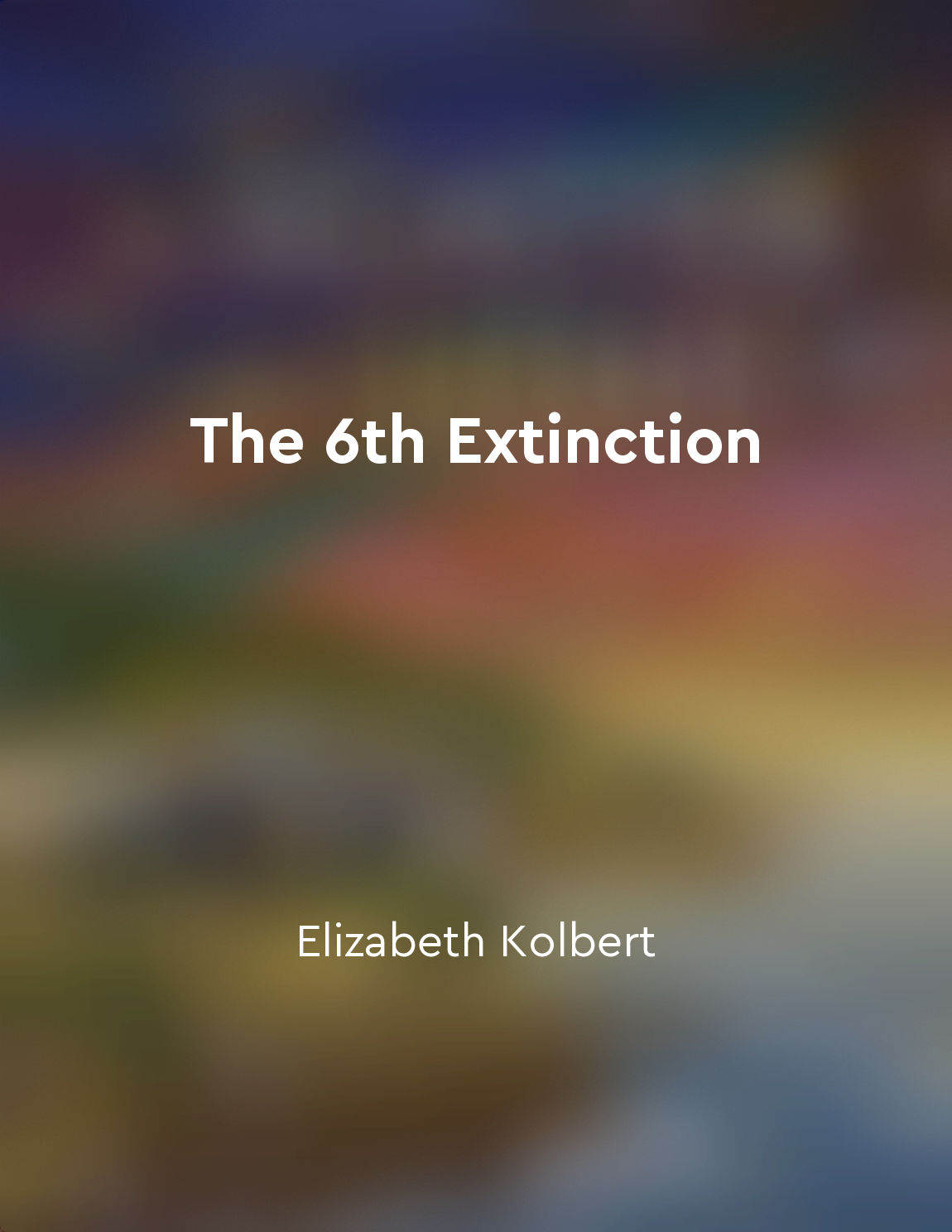The health of pollinators is linked to human health and wellbeing from "summary" of The Forgotten Pollinators by Stephen L. Buchmann,Gary Paul Nabhan
The interconnectedness of all living things is a fundamental truth that cannot be ignored. In the intricate web of life, every species, no matter how small or seemingly insignificant, plays a crucial role in maintaining the delicate balance of ecosystems. Pollinators, such as bees, butterflies, birds, and bats, are essential components of this web, facilitating the reproduction of flowering plants by transferring pollen from one flower to another. The health of pollinators is not a matter that concerns them alone; it has far-reaching implications for human health and wellbeing. The food we eat, the air we breathe, and the landscapes we inhabit are all intimately tied to the activities of pollinators. Without their tireless efforts, many of the fruits, vegetables, and nuts that form the basis of our diets would cease to exist. In fact, it is estimated that one out of every three bites of food we take is made possible by pollinators. Beyond the realm of agriculture, pollinators also play a vital role in maintaining biodiversity and ecosystem stability. By facilitating the reproduction of plants, they ensure the continuation of diverse plant communities that provide habitat for a multitude of other species. This interconnectedness is not just a matter of convenience or aesthetics; it is a matter of survival. However, despite their importance, pollinators are facing unprecedented challenges in the modern world. Habitat loss, pesticide use, climate change, and disease have all taken a toll on pollinator populations, leading to declines in many species. If these trends continue, the consequences for both pollinators and humans could be dire. In order to safeguard the health of pollinators, we must recognize the intrinsic link between their wellbeing and our own. By taking steps to protect and support pollinators, we can ensure a more resilient and sustainable future for all living beings. The time to act is now, before it is too late.Similar Posts

Hold corporations accountable for emissions
Corporations play a significant role in the emission of greenhouse gases that are driving climate change. These emissions are n...

Eating whole foods promotes wellness
When we choose to consume whole foods, we are making a conscious decision to prioritize our physical well-being. Whole foods ar...
Biodiversity is the key to a healthy ecosystem
Biodiversity is the variety of life forms that exist on Earth, encompassing all living organisms, from the smallest microorgani...
By planting native species, we can help restore balance to ecosystems
The idea is simple but profound: when we plant native species in our landscapes, we are not just adding pretty plants to our ga...
Advocating for policy changes to protect nature
One key strategy for combating the myriad threats facing our environment is to push for changes in policies that govern how we ...
Ecosystems are complex and fragile
Ecosystems are intricate webs of life, where every living organism is intricately interconnected with its environment. The deli...
Biodiversity declines rapidly
The Earth is teeming with life, a vast array of species spanning from the tiniest microorganisms to the largest mammals. This b...

(Note: The above key ideas have been generated based on the content and themes of the book "The Sixth Extinction" by Elizabeth Kolbert)
The concept of the sixth extinction revolves around the idea that Earth is currently experiencing a mass extinction event, caus...
